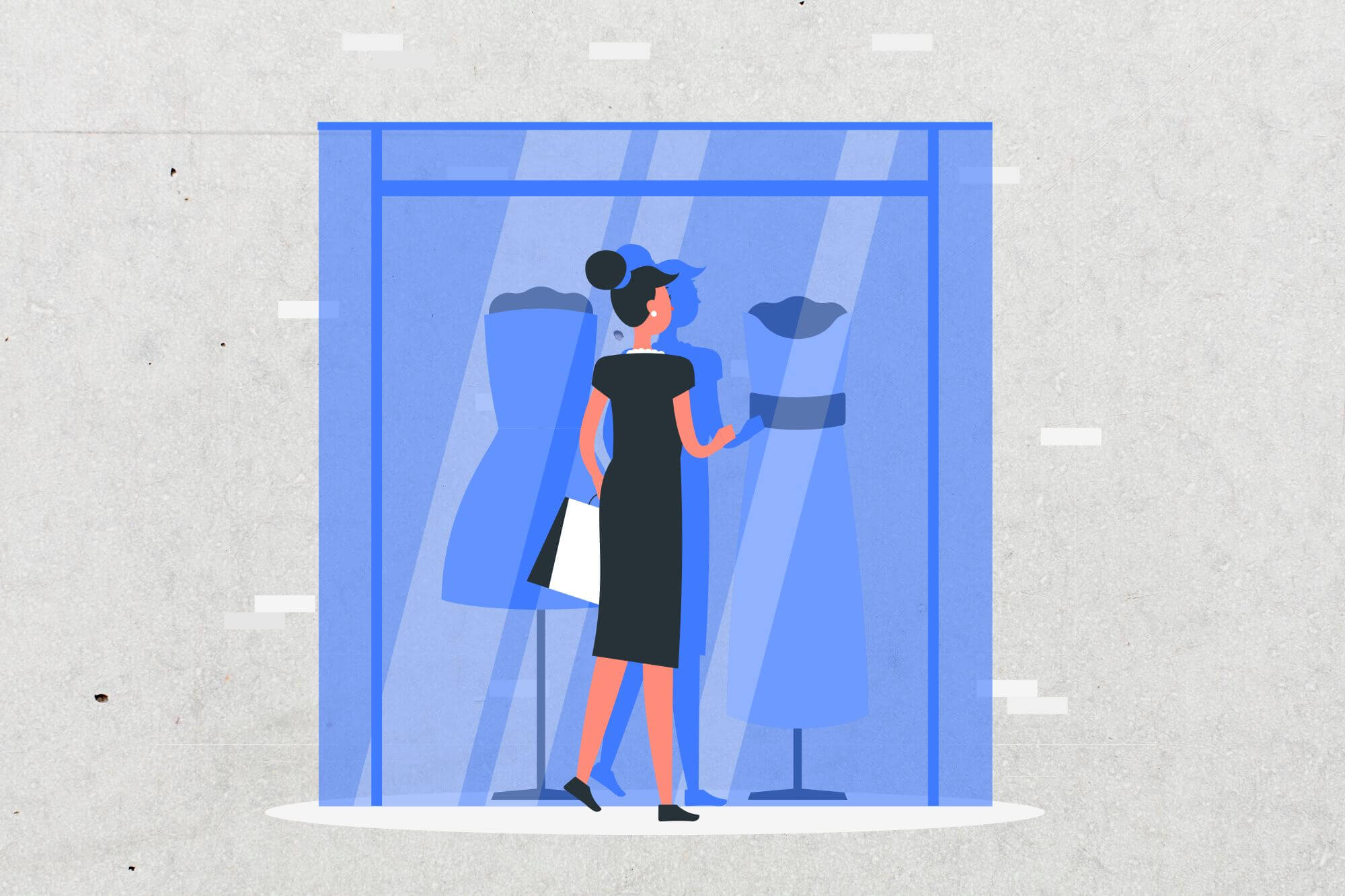What Are the Main Types of Fashion Buyers?
To become a fashion buyer, you must have good contacts with suppliers and designers. Fashion buyers are an essential part of the clothing retail business. They choose and buy products from clothing stores, department stores, and fashion brands. A fashion buyer’s responsibilities can differ depending on the type of products they specialise in, the size of the company they work for, and the market they serve. Here is an overview of the main kinds of fashion buyers.
- Retail Fashion Buyer: Retail fashion buyers are employees of high street stores, online retailers, or department stores. They buy fashion items to satisfy the current fashion trend and the store’s target customers, who want fashionable and sellable items. To become a fashion buyer, you must ensure that the stores are stocked with items that balance style and commercial value.
- Luxury Fashion Buyer: Luxury fashion buyers work for luxury fashion brands or designer boutiques. Their responsibilities include selecting exclusive, high-end luxury products for their brand. A luxury buyer will travel to fashion weeks in Paris, Milan, or New York to attend fashion shows or meet with designers.
- E-commerce Fashion Buyer: An e-commerce fashion buyer works for an online retailer. They identify products they believe consumers will likely buy online, often focused on online trends, search engine optimisation (SEO) and the digital journey. They work closely with digital marketing teams to drive sales online.
- Department Store Buyer: Department store buyers purchase various products, often in multiple categories—women’s wear, men’s wear, children’s clothing, and accessories. They must also keep track of seasonal trends, customer preferences, and a store’s brand image across multiple departments.
- Wholesale fashion buyer: This employee will buy thousands of apparel from designers or manufacturers to resell to other retailers. She buys from a wholesaler or distributor and negotiates bulk purchases for a better price.
- Sustainability Fashion Buyer: Sustainability buyers seek clothes and accessories produced in an environmentally and socially responsible way. They are responsible for purchasing items that are good for the planet, working with suppliers who provide clothes made using sustainable materials, following fair trade standards, and having a low environmental impact.
- Private Label Buyer: A private label buyer works for a company that makes its brands. They source products and oversee their production to ensure the clothing meets the brand’s quality and style specifications. Private label buyers work with designers and manufacturers to create exclusive collections.
- Activewear/Outdoor Fashion Buyer: Specialising in buying activewear, performance sportswear and outdoor fashion for brands and retailers targeting enthusiasts and outdoor adventurers. Must keep current on performance fabrics, active lifestyle trends and consumer needs in the athletic market.
- Fast Fashion Buyer: Fast fashion buyers work for retailers that produce cheap, high-speed clothing, often by copying high-end designers. These buyers must be able to see trends in fashion shows, celebrity culture, and social media and work with manufacturers to get the products into stores as quickly as possible.
- Footwear Buyer: Footwear buyers buy footwear for retail stores, online sites or brands. They must know what’s trending in footwear, from casual and athletic footwear to dress shoes. Footwear buyers must balance fashionable and functional shoes that will stand the test of time and meet the customer’s needs.
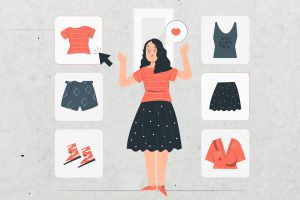
What Does a Fashion Buyer Do?
To become a fashion buyer, your job is to monitor key trends in clothing, footwear and accessories, source these ranges efficiently and purchase them for a retail store or fashion brand. You work with a designer, supplier and merchandiser to select the styles and ranges that will be bought and stocked in the stores. Some of the tasks a fashion buyer is responsible for are:
- Trend research: To become a fashion buyer, you must stay abreast of what is trending and what will be trending soon. They can do this by reviewing runway shows, fashion magazines, social media, and street styles to predict the top styles of future seasons. The buyer must be able to recognise trends that will have a short shelf-life versus those that have long-term commercial viability.
- Product Selection: The buyer attends trade shows and fashion weeks, meets with the designer to view collections, and selects various products that resonate with the brand image and target audience. The buyer chooses trendy products according to consumer preferences and has a high profit margin. They also ensure the selected product fits into the store’s collection and price range.
- Supplier Negotiation: To become a fashion buyer, you negotiate with suppliers, manufacturers, and designers to obtain the best prices, delivery terms, and payment conditions. Buyers must weigh what they need and can afford to get the best of both worlds. In fashion, good negotiation skills ensure that a buyer gets the best products for the best price while maintaining good relationships with the suppliers.
- Inventory Management: To become a fashion buyer, you work with the merchandising team to forecast stock levels. They need to predict demand and avoid overstocking or understocking goods, which can lead to losses.
- Budgeting: To become a fashion buyer, you have to manage budgets. They are given a specific budget to work with, and they have to allocate it across multiple product categories. They have to ensure that they maximise profit while staying within financial constraints.
- Sales Analysis: After they select and buy the products, they analyse sales data to evaluate the performance of their buying selections. They monitor what is selling well and what is not and use this information to make future buying decisions. They also use sales analysis to determine what styles their customers prefer and what trends are emerging.
- Supplier Relationship Management: To become a fashion buyer you must have good contacts with suppliers and designers. The stronger the relationship is, the better the price they will get from the supplier, the better the product, and they might even get access to the collection before it is available in the market. Usually, buyers look for long-term relationships with suppliers to maintain the same level of service and quality.
- Attending Fashion Shows and Trade Shows: To become a fashion buyer, you typically attend fashion weeks, trade shows, and designer showrooms to see new collections, meet with designers, and uncover new trends. Events are necessary to stay ahead of the game and find new opportunities.
- Forecasting trends and demand: To become a fashion buyer, you must know which styles, colours and fabrics will be fashionable in the next few seasons. This means monitoring trends, understanding consumer preferences and using analytical skills to forecast demand. Buyers must accurately predict demand to avoid stocking too much or too little of a product.
- Collaboration with Merchandising Teams: To become a fashion buyer, you collaborate with the merchandising team to fit the merchandise into their store. They discuss discounts, displays, price tags, etc.
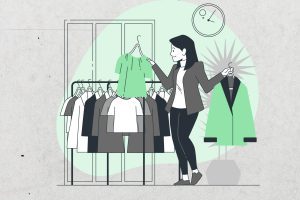
Average Fashion Buyer Salary
The salary of a fashion buyer in the UK depends on their experience, their location, the size of the company they work for, and their part of the fashion industry. If they work for luxury brands or big retail chains, they will probably earn more than if they work for smaller companies. Below is an overview of the typical salaries of fashion:
- Entry-level fashion buyer: This is the lowest general level of fashion buyer and is usually somebody who has just taken their first steps in the industry and may need tertiary qualifications or more work experience. They might be assistant or junior buyers earning between £20,000 and £28,000 yearly. They will work towards a fashion buyer who will liaise with suppliers, conduct trend research and coordinate inventory.
- Mid-Level Fashion Buyer: With five to ten years of experience, a fashion buyer can earn £30,000 to £45,000 a year. At this level, the buyer makes purchasing decisions independently, manages relationships with suppliers, and deals with more complex product categories.
- Senior Fashion Buyer: A senior fashion buyer—typically working for a high street or luxury retail brand—is between £50,000 and £70,000. Such buyers have a great deal of responsibility, with bigger budgets and a team of junior buyers to oversee, and they attend the most exclusive fashion events.
- Luxury Fashion Buyers: Buyers who buy luxury fashion or work for a designer brand can earn more than £70,000, primarily if they work with high-end, exclusive products. Their knowledge of sourcing high-end items and developing relationships with luxury designers are valuable skills.
Fashion Buyer Skills
To become a fashion buyer, you should have a balance of creativity, business sense, and analytical skills. The career of a fashion buyer blends creativity, market sense, intuition, and data-mindedness. Fashion buyers should be able to understand fashion trends, the behaviour of consumers, and the dynamics of the market while making data-driven decisions. Take a look at the critical skills needed for a career as a fashion buyer below.
- Trend Awareness: To become a fashion buyer, you must be tuned into current and future trends. They must sense what consumers might be looking for next season and buy products that will reflect those trends.
- Analytical Skills: To become a fashion buyer, you use data to inform their buying decisions. They examine sales data and the market to help decide what and how much to buy. Analytical skills are essential for predicting demand and managing budgets.
- Negotiation skills: A fashion buyer’s primary skill is negotiation. They need to negotiate prices, delivery terms, quality conditions and many other issues with suppliers and manufacturers to get the best deal for their company. Good negotiation skills can be the decisive reason a company still makes a profit.
- Communication Skills: To become a fashion buyer, you’ll work with several stakeholders, such as designers, suppliers, merchandisers, and sales teams. Communication is vital in building relationships with these individuals, assisting in coordination across different teams, and communicating clearly and concisely about your buying decisions.
- Creativity: Even though fashion buying is a business-oriented position, you still need to be able to think creatively. To succeed, buyers must identify unique and innovative products and think creatively about how to present and market them.
- Time management: To become a fashion buyer, you are often under tremendous pressure to meet deadlines, particularly when attending shows, visiting suppliers and making purchases for the forthcoming seasons. Effective time management is vital to ensuring goods arrive on time.
- Attention to detail: To become a fashion buyer, you must pay attention to detail to evaluate products, negotiate contracts, and manage stock levels. Any small mistake (e.g., sizing issues or late deliveries) can cost sales and money.
- Financial Acumen: Financial Acumen is part of the job for fashion buyers. They must be able to grasp concepts such as gross margin, markup, and profit margin to know that the purchases they make yield to the company’s financial goals.
- Market Knowledge: A buyer in the fashion industry needs to be aware of what is happening in the broader fashion market, such as competitors and consumer behaviour. This industry knowledge helps buyers make more informed decisions about what to buy.
- Adaptability: Fashion is a fast-paced industry that changes constantly, so fashion buyers need to be adaptable. They must pivot quickly in response to new trends, the suppliers or the shipments, or changing consumer demand.
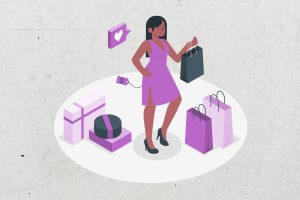
Fashion Buyer Tips
These are some tips for wannabe fashion buyers:
- Keep up with the latest trends in fashion: Fashion is ever-changing, and to stay one step ahead, it is essential to keep up to date with the latest developments. Get acquainted with fashion blogs, shows, magazines and journals of fashion, and various social media influencers to stay abreast of the latest trends.
- Work with Your Suppliers: It is critical to have a great relationship with your suppliers and designers. A good rapport may mean better prices, exclusive products, and an early view of new collections.
- Work in retail: A good starting point for a career in womenswear is to work on the shop floor as a sales assistant or merchandiser, where you’ll learn to know your customer, what sells and what doesn’t, as well as how to plan and drive sales on the shop floor. This experience will help you to understand the whole retail cycle and prepare you for a role as a buyer.
- Analytical skills: the role involves more than just a ‘good eye’ for fashion; you’ll need to be able to interpret sales data, forecast trends and buy accordingly. Practise using spreadsheets, databases and retail software.
- Go to the industry events: Fashion shows, trade shows and industry events are great for networking and learning about new trends and products. Try to attend these events and build your network of industry professionals.
- Learn constantly: Fashion buying is a career in which you must learn constantly. Be open to feedback from more senior buyers, seek new information about the fashion industry to learn more, and stay curious about what is happening in the market.
- Brush Up Your Negotiating Skills: A key benefit for fashion buyers is their negotiation skills. Think of ways to negotiate differently with your work colleagues or customers. New negotiation skills can help you get better deals and improve your company’s profitability.
Fashion Buyer Requirements
However, there are no formal requirements for working as a fashion buyer. Many employers want to employ candidates with relevant qualifications or experience, though this is optional. Here are some typical requirements to work as a fashion buyer:
- Education: A bachelor’s degree in fashion merchandising, fashion design or business is often preferred by employers, but you can also pursue a degree in a related field and pursue a specialised course in fashion buying or retail management, although this may not be necessary.
- Certifications: While not always required, certifications in retail management, merchandising, or fashion buying can enhance your credentials. Short courses or diplomas in fashion buying can provide practical skills and knowledge about the industry.
- Experience: Most fashion buyers start their careers in retail or merchandising roles, picking up a working knowledge of customer service; any experience working in fashion – whether that’s through an internship, part-time or seasonal roles, or work experience – will be of interest to employers.
- Skills: As noted earlier, fashion buyers require a blend of analytical, creative, and communication skills. When considering candidates, employers will want to see evidence of an ability to manage budgets, analyse trends and negotiate with suppliers, among other things.
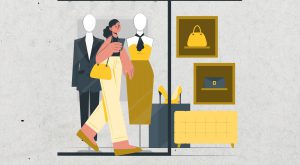
How to Become a Fashion Buyer
The job of a fashion buyer is usually learned on the job, which means that you will blend your education with some experience and acquire some skills. Here is a step-by-step guide to becoming a fashion buyer.
- Study fashion or business: A degree in fashion merchandising, business or retail management provides a good platform for a career in fashion buying. You can also look at more specific courses in fashion buying some universities offer.
- Work in Retail: Whether selling shoes, coordinating displays or inventory, getting some retail experience will help you discover the consumer psychology behind buying behaviour and the cycle of retail.
- Take a Fashion Buying Course: If you want to focus on fashion buying, consider taking a short course or diploma in fashion buying or merchandising. These typically include modules on trend forecasting, supply chain management, and inventory control.
- Network in the Fashion Industry: Networking is essential in the fashion industry. You should attend trade shows, fashion exhibitions, and industry conferences to interact with designers, suppliers, and other buyers. This will help you get a job and keep up with the latest trends.
- Start junior: Most fashion buyers start their careers as assistants or junior buyers, supporting a senior professional in tasks such as trend research, product selection and supplier communication. Starting in a junior role will give you a practical basis to learn the ropes.
- Hone your analytical skills: To become a fashion buyer, you are guided by data when making product purchases. Get comfortable with analysing sales figures, market trends, and consumer preferences. Practise using retail software applications and data analysis tools to hone these skills.
- Get some internships or work placements: Finding work placements with fashion brands, retailers, or wholesalers is a great way to get practical experience in the buying process. Many companies take on interns for fashion-buying placements.
- Keep up with the fashion industry: Fashion is a fast-paced industry, and as a fashion blogger, you need to keep up with new trends and designers, market developments, and developments within the industry. Follow fashion journals or magazines, follow fashion influencers, and attend fashion events.
Frequently Asked Questions
Why Should You Become a Fashion Buyer?
A career as a fashion buyer is likely to be dynamic, creative, and fast-paced. You will have the opportunity to influence and contribute to fashion trends, work with designers, and play a vital part in the success of retail businesses. If fashion is your passion and you have a flair for business, this could be the career for you.
Is Being a Fashion Buyer a Good Career Choice for You?
If you’re a fashion-obsessed, data-driven decision-maker who loves shopping, becoming a fashion buyer might be your perfect career move. F, analytical and exceptional, it is incredibly varied and exciting.
Fashion Buyer Salaries
How much does a fashion buyer in the UK typically earn? According to research from FindItCambridge, salaries for fashion buyers depend on experience and company size. Junior buyers earn £20,000-28,000, while senior buyers working for large retailers or luxury brands earn more than £50,000.
Which Qualifications Can Help with a Career as a Fashion Buyer?
Studying for a degree in fashion merchandising, business, or retail management will put you on the inside track of landing a job as a fashion buyer. Specialised coursework in fashion buying or retail management and a certification in merchandising can also help you get a foothold in the fashion world.
Do I Need to Be an Experienced Fashion Buyer to Get Started?
Not necessarily. While some fashion buyers start in entry-level roles as assistant buyers or junior merchandisers, retail or merchandising experience can help you develop the skills necessary to work your way into a fashion buyer role.
Fashion Buyer Career Outlook
The demand for fashion buyers is vital because the industry is growing. As new e-commerce platforms emerge and established online retailers expand, brands seek buyers who understand digital trends. Buyers with experience in e-commerce, sustainability or luxury goods are particularly sought-after.
Fashion Buyer Hierarchy and Progressing Within the Role
Many fashion buyers start as junior or assistant buyers before working up to senior buyers. At this point, they may move into more senior roles such as head of buying, merchandising director or product development manager, leading bigger teams and buying and managing bigger budgets.
Fashion Buyer Exit Options and Opportunities
Fashion buyers can go on to work in product development, merchandising or brand management, or they can set up their fashion consultancy businesses. Alternatively, they might move into trend forecasting or retail strategy.


